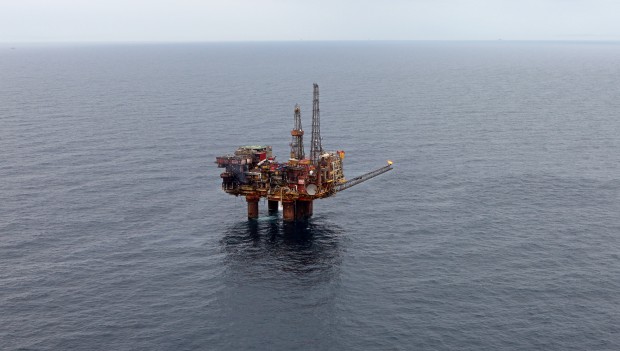The company, commonly known as TAQA, is listed on the Abu Dhabi Securities Exchange, and is 72.5% owned by the government of the United Arab Emirates (UAE).
The June 2 announcement marks another step for the company’s nearly USD 1.3 billion investment in BP’s portfolio of mature oil fields in the North Sea.
It is the latest of a long string of deals in the UK that began in 2006, only a year after the company was created. The deals include interests in oil transport, exploration and production assets.
In 2012, TAQA produced around 42,000 barrels per day (bpd) from its UK operations, which pump around 30% of its global output. The completion of the BP agreements could add another 20,000 bpd.
It will allow the company to consolidate its growing position in Europe, which will require the integration of a diverse portfolio. TAQA’s portfolio also includes transportation, storage, and production of gas in the Netherlands.
The move is also part of a wider trend, with major players like BP, Shell and others selling European assets to smaller concerns like TAQA. Growth in demand for oil and gas in Europe is projected to remain flat for decades, and the North Sea oil output specifically is on an irreversible path to depletion.
Analysts nonetheless say that this offers valuable opportunity for smaller players in the market.
“It’s a mature province, but there are plenty of opportunities,” said Mark Higginson, an oil and gas specialist and senior partner at PWC Aberdeen. “Oil majors are moving to bigger accumulations further out, but behind them they’ve left attractive assets, with still plenty of life and opportunity for smaller players, like TAQA. It gives companies access to offshore technology and production to balance their portfolios at reasonable costs.”
As a result, the industry umbrella group Oil and Gas UK expects North Sea oil and gas output to increase to 2 million bpd by 2017 as a result of increased investment, especially from newcomers.
TAQA claims that it is well positioned to synergize its experience and financial muscle to secure profit in the long term and leverage profit constraints from maturing fields at home. “We have proven that we can take late-life assets, stop the decline in production, and push it in the other direction,” said a spokesperson for the company.
CEO Sheldon has said the company’s biggest challenge is consolidating its new acquisitions with its existing assets. More importantly, the company has already increased reserves and extended the average lifetime of its North Sea fields, a trend that is likely to continue.
“It takes time to integrate acquisitions. There is a digestion period we’ve been going through. This is a journey and we continue to evolve,” Mr. Sheldon said in a March TV interview.
TAQA’s strategy is part of the broader policy of the UAE of diversifying its interests and economy as its oil reserves are depleted. A major component of this policy is the ability to capitalize on less headline-grabbing sectors of enhanced oil recovery, pipeline infrastructure, and gas storage in places like Europe.
Abu Dhabi has three main foreign energy diversification vehicles, each specializing in one part of the value chain, each of which avoids competing with the others. The three, plus TAQA and other companies, have spread their interests across the entire energy production and distribution chain, and have split their bets geographically and even technologically.
Mubadala Development takes care of capital intensive, large-scale exploration and production projects, especially the in Caspian Sea region and Asia, as well as renewable energy. The International Petroleum Investment Company (IPIC) concentrates on petrochemicals, pipeline infrastructure, liquefied natural gas, and minority stakes in other foreign energy companies.
TAQA has assets in a dozen countries in power generation, water desalination, and the entire oil and gas value chain. Its oil business in Europe, North America, Iraq and the Middle East accounts for 42% of revenue.
In Kurdistan, it hopes to produce gas to use to supply Iraq’s power generation needs. In Canada and the US, it has conventional oil production and pipeline infrastructure.
In Europe, it has concentrated on building its portfolio of assets in the North Sea. In the Netherlands in particular, TAQA has acquired a portfolio of gas assets producing small but profitable volumes. However, the central thrust of its strategy there revolves around gas storage, including the Bergermeer storage facility, which will be Europe’s biggest when completed and uses a depleted field as a container.
Although it has struggled to raise production in the UK, TAQA has increased its reserves and reserve replacement ratio, as well as extended the life of its assets there. BP assets provide “a new development and export hub independent of TAQA’s existing northern North Sea assets and further investment opportunities offering attractive rates of return and growth to our portfolio into the long term,” the company’s spokesperson said.
Investment in the North Sea is rising following the government’s introduction of incentives to attract mid-size companies to replace oil majors, after unexpectedly raising taxes in 2011, which led to an investment freeze. “The government caused a problem and it came up with solution. It has given more certainty and that’s made it easier to access credit,” Mr. Higginson said.
TAQA, like other firms, operating in maturing North Sea fields, faces plenty of other risks.
International oil prices could also undermine margins, experts say. Average breakeven production prices in the North Sea are around USD 70 a barrel, and increased output in North America, especially from shale oil, or smaller global demand growth from emerging economies, like China, could hurt TAQA’s operations.
There are also resource shortages, especially in terms of drilling rigs and qualified personnel, which are being lured to more profitable projects around the world.

